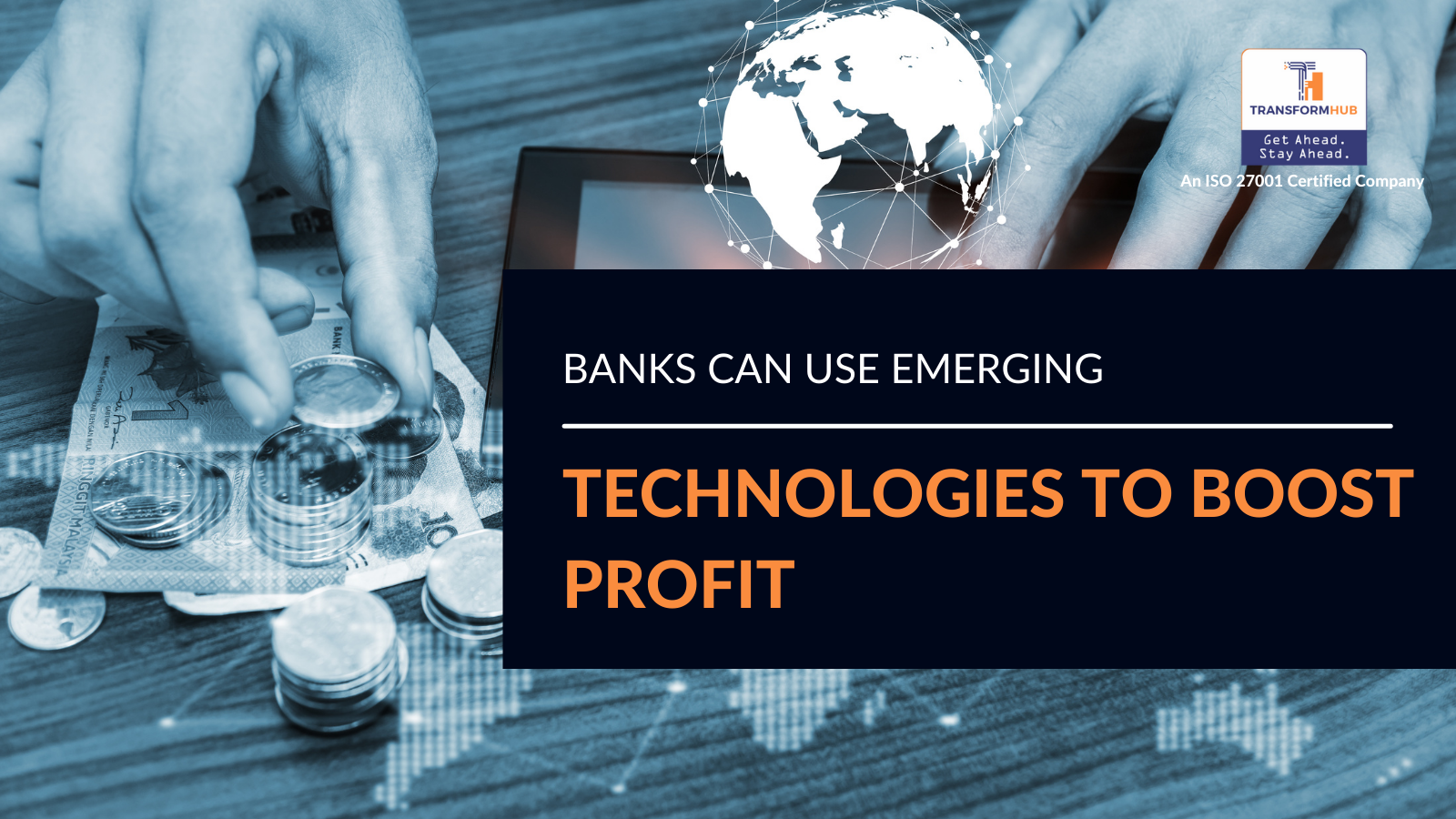Importance of technology in the vast spectrum of investment domains.
There is always some risk associated whether investing in equities, real estate, precious metals, or other markets. While there is no secret formula for ensuring your investment is safe, technological improvements have helped wealth managers, brokers, and investment bankers make the best, low-risk decisions for their customers in recent years.
The use of data in financial markets has been one of the most significant breakthroughs in recent years. When devices began to send electronic stock market quotations directly to customers, electronic data systems became popular in the finance industry. Suddenly, brokers, traders, and investors could track prices in real-time rather than relying on ticker-tape machines and phone calls.
This technique has evolved into high-frequency Big Data analysis, becoming the industry standard in finance. It assists investors in locating efficiencies in areas they did not consider or were unable to reach, allowing them to move from intuition to a more considered conclusion.
It's no surprise that technologies can assist investors in earning money, but how can technology transform data into dollars, and what other industries does it currently influence?
● Real Estate Investment
Realty is one of the most highly successful investment sectors for any person or corporation's portfolio. New technology, which is being developed in this field, will enable even more enormous profits to be generated with more accuracy.
By utilising Big Data and artificial intelligence (AI), property owners may now more efficiently recognise patterns, such as where the property is most in-demand, most required, and most likely to rise in value, by utilising Big Data and artificial intelligence (AI). They are, in effect, removing the element of risk from the investing choice.
Data systems provide investors and developers with a detailed grasp of the market. They'll see details like where people are migrating, what office spaces and commodities are being used, and how costs are fluctuating. In addition, due to the increased access to data in the market, the 'purchase side' of a transaction will be more secure.
Individual investors may now make the most out of their money through peer-to-peer networks, with organisations assisting them in investing in new and current property loans. Such platforms make it easy for an entrepreneur who is on the verge of missing out on a deal to acquire credit and secure financing.
This technological advancement will aid illiquid asset investors in getting the most out of their venture by bringing clarity and quickness to the decision-making process.
● Arts and antiques
The use of virtual reality to help the sale of artworks is a relatively recent technological innovation in the arts sector. While this has been tested extensively in the real estate industry, its application to the realm of art and antiquities is still fresh.
In March 2017, Sotherby's, a London-based auction company, released a 360-degree VR video for their surrealism sale, allowing potential purchasers to go inside the surrealist artworks before making a purchase decision. The four essential works were included in four independent virtual reality programmes, including Salvador Dal's £6.8 million Moment de Transition. Art auctioneers appear to be following galleries and museums' footsteps in responding to the digital world.
This option provides art collectors additional opportunities in their inventory by allowing them to examine artwork from other countries in more depth, minimising the risks of missing out on a good purchase. Another platform is making a difference by helping investors to make better judgments about the worth of a work of art. It helps estimate risk/return on investment by considering the artist's career, the year the item was made and examining art auction outcomes.
● Stocks and bonds
The creation of Robo-advisers, which has given shareholders the ability to study precise information and data before making decisions at the push of a button, has been the most significant technological improvement in the financial industry. Platforms have emerged in this space, concentrating on offering consumers round-the-clock access to their assets, complete openness, and full transparency without the need to engage a plethora of consultants during business hours.
While Robo-advisers have aided individuals in their investing decisions, blockchain has recently made strides for large-scale investment firms, Forbes describing it as "Wall Street's most game-changing technology since the internet." The technology, which has become famous for its connection to bitcoin, creates a safe and straightforward way to digitally track asset ownership before, during, and after transactions.
Its numerous advantages have the power to change the trading floor and result in intense, elevated trading becoming safe, secure, and ultimately faster. One of the most significant advantages of blockchain is the sharing economy it generates: the more people who use it, the higher the network's value. Therefore, the faster it is implemented and the sooner the returns.
Although some of the innovation mentioned is still in their infancy, their financial potential is enormous. Investing in technology will only become more transparent and successful as we reach the dawn of AI and machine learning. Investors have become more empowered to make decisions with greater control of their investments and make more informed decisions, whether through blockchain or Big Data. Of course, the acquisition will always involve some level of risk, but with the right technology, that risk may be reduced.
4 Ways Tech Can Improve Your Investment Strategy
Investing has long been perceived as a traditional activity carried out by the elderly or the exceedingly affluent, and it's a frightening pastime for many individuals to pursue. However, that has started to change in recent years. Perhaps one of the most crucial elements is the attention that the IT sector has given it.
You may now go with complete confidence knowing there are various digital aids to assist you in traversing the markets. The approach will have you come out uninjured and with a larger pocket, from new fintech technologies like blockchain to applications that help consumers make various investing decisions. Here are a few of your alternatives and how to make the most of them.
● Financial-Planning Software
Nothing beats having a thorough understanding of your portfolio and cash flow position when it comes to finances. Without such information, it will be challenging to keep track of your stocks or other assets, and you may make mistakes that are detrimental to your total portfolio.
That information is now practically at your fingertips thanks to the financial-planning software that is now accessible. In addition, applications on your device or Laptop provide you access to budget tools, marketplace and volatility analytics, and other capabilities.
● Communication
You'll need to work with a qualified financial advisor if you want to optimise your profits, especially if you're dealing with a large sum of money. Stay in contact as much as you need to ensure you're getting the most out of that connection is one approach to ensure you're getting the most out of it. That way, you'll always be informed about what's going on in the market and your portfolio.
Incorporate social networking, VOIP, or any other option that can allow you to acquire updates and convey instructions virtually instantaneously by asking your advisers what communications methods they use. Close communication will be critical for success and loss prevention in today's age of split-second events on numerous marketplaces.
● Security
If you're like most people, you do the vast bulk of your monetary operations online. While this is a beautiful thing that makes a living and investing much more accessible, it also exposes you to hacker assaults and other security breaches, resulting in financial loss if you aren't careful.
You'll need to take extra steps to keep your data protected. For example, to better safeguard your transactions, you might want to consider employing a substantial token or biometric verification. But don't forget the fundamentals. To keep your sensitive information safe, use secure password managers, and maintain your software up to date to limit the danger of infiltration.
● Situational Awareness
It would help if you first recognised the chances until you can make the best offers. With today's media glut, it's all too easy to lose sight of important news that may be helpful. It's even possible to overlook vital information that might affect your portfolio.
To remedy this, you may utilise news-aggregation tools that use artificial intelligence to track stories that are relevant to your interests. These tools can help you automatically uncover changes thanks to recent breakthroughs in machine learning, so you don't have to spend as much time scanning the web or newspapers manually.
Overall, technological innovation has enormous potential to revolutionise investing, and markets will most likely look very different in a few years. However, several instruments in the areas listed above might help you stay ahead of the competition and reward your investing plan.
How can TransformHub help you to build a robust investment portfolio?
Now, we have understood how technology can transform your investment portfolio. But the real question is how to find the right digital partner to help you build the technology-driven solution. This is where TransformHub comes into the picture. Our pioneer team of experts serves the right solutions related to product engineering, data& analytics, quality assurance and testing.
Digital transformation and automation are the most robust portfolios in the digital transformation we specialise in. So, if you are looking for a technical partner to bring the new digital era to the investment industry, you can contact us through a call on +65 31384660 or email us directly here: sales@transformhub.com.
Share this
You May Also Like
These Related Stories

Banks can use emerging technologies to boost profit

What is The Impact of Web3.0 on the Fintech Industry




